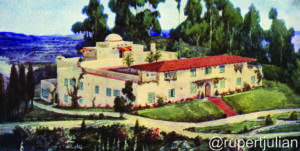
Krotona Center rendering, early 1920s
In 1924, the Theosophical Society, founded in 1875 in New York City by the colorful Madame Blavatsky, established its presence in the serene valley of Ojai. A century later, the Krotona Institute of Theosophy commemorates its centennial anniversary, nestled on a 118-acre wooded estate, boasting Spanish-style architecture, lush gardens, and captivating views of the Ojai Valley.
By Kate Fernandez
Originally founded in Hollywood in 1912, the Krotona Institute emerged as a spiritual haven for members of the Esoteric School of Theosophy in America. However, as Hollywood became busier, expensive and less aligned with the spiritual values of Theosophists, the institute sought a new home. Ojai emerged as a contender, offering the tranquility that resonated with the ideals of Theosophical Society members.
Ojai was first scouted in 1922 by Jiddu Krishnamurti, then the Theosophist’s World Leader, who brought his tubercular brother Nitya to stay at the East End home of a fellow Theosophist. Ojai was well-known at the time as a health resort, especially for people with lung ailments. They loved it so much that Annie Besant, then international president, bought the cottage for them.
The head of the Krotona Institute of Theosophy in Hollywood, Albert P. Warrington, decided Ojai was just the place for the new center. That was after several false starts; the Theosophists reportedly negotiated to buy the entire state of Baja, California, and Baja remains an important location for the Theosophical Society. In fact, Besant, a formidable fund-raiser, sight unseen, bought 465 acres in upper Ojai and called it “Happy Valley,” along with another 175 acres near Krotona, site of the famous Oak Grove where Krishnamurti spoke to thousands of people each year. It is now the site of Oak Grove School.
Besant finally visited Ojai at age 79 in 1926 as the Krotona Center was taking final form. She was enthusiastic.
“One of the beauty spots of the world is the Ojai Valley in California,” she wrote in The Theosophist.
“Mountains ring it round; it has remained secluded till recent times, and is still but sparsely inhabited … Such is the setting for the cradle of the New Civilization in America.”
Besant, besides heading the Theosophical Society, and mentoring Krishnamurti, also mentored a young South African lawyer named Mohandas K. Gandhi. Even after Gandhi was given the honorific “Mahatma” or Great Soul, he credited Besant for her energy and organizing force for India’s decades-long struggle for its independence. She was also instrumental in movements for women’s rights and labor activism.
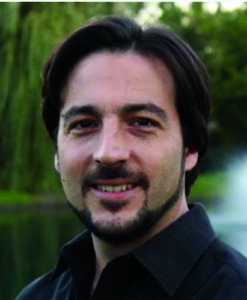 Pablo Sender, Ph.D, resident and teacher, along with colleagues Elena Dovalsantos, and Maria Parisen, were all recently interviewed on the Ojai Talk of the Town podcast regarding Krotona’s upcoming anniversary celebrations.
Pablo Sender, Ph.D, resident and teacher, along with colleagues Elena Dovalsantos, and Maria Parisen, were all recently interviewed on the Ojai Talk of the Town podcast regarding Krotona’s upcoming anniversary celebrations.
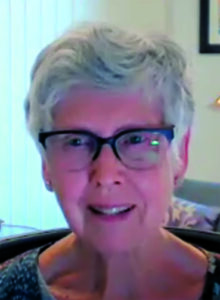 As the director of the school, Parisen manages student housing, arranges programs, and seeks out guest speakers, in addition to sitting on the board of directors.
As the director of the school, Parisen manages student housing, arranges programs, and seeks out guest speakers, in addition to sitting on the board of directors.
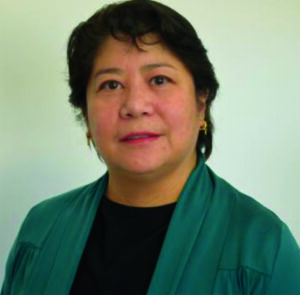 Dovalsantos, who is the resident head of Krotona, also sits on this board, in addition to managing infrastructure and overseeing the upkeep of the Institute’s grounds.
Dovalsantos, who is the resident head of Krotona, also sits on this board, in addition to managing infrastructure and overseeing the upkeep of the Institute’s grounds.
Sender said, “When Annie Besant came, she recognized immediately that the value (of Ojai) was special from a spiritual point of view. She foresaw that this was going to be a spiritual place.”
Besant’s influence extended beyond recognition; she actively participated in fundraising for land purchase and construction in Ojai. Her vision shaped the institute, specifying that the land be used exclusively for educational purposes, fostering spiritual development rather than commercial pursuits.
Today, the Krotona Institute stands as a Theosophical school, offering courses, seminars, and workshops.
With Besant’s imprint, the institute houses the world’s largest collection of Esoteric literature in its library, serving as a hub for spiritual exploration. The Theosophists were the first organization to bring Eastern philosophies like Buddhism and Hinduism to the West.
Parisen explained that from April 12 to April 26, Krotona will be celebrating the centennial in a variety of ways. “The Krotona President… and her husband are coming in. They’re going to do some teaching for us for one week. And that’s on a Theosophical classic called ‘The Voice of the Silence’.
It’s a mystic text that has to do with meditation and the unfolding of consciousness into something more universal, more compassionate, more wise.”
Following this teaching on “The Voice of Silence,” which will last for about five days, there will be an interlude weekend, which Peter Russell will be attending on Saturday, April 20. Russell is an author and speaker who focuses on spirituality, science and consciousness, and perennial philosophy. Parisen noted that he will “bring a very interesting perspective to Earth Day weekend.” ”The Voice of the Silence” is a mystic text focusing on meditation and consciousness unfolding. Russell will bring his unique perspective on spirituality, science, and consciousness.
The anniversary celebrations aim for introspection, exploring the transformative power within and without. Betsy Stix, Ojai mayor, and Julie Tumamait, Chumash Elder, will contribute to the opening ceremony, emphasizing the theme of change rooted in consciousness.
While anticipating the event’s impact on the Theosophist community, the Krotona Institute remains distinct in its focus on living the teachings rather than outreach. Krotona aims to deepen connections, harmonize efforts, and extend its influence globally through its online classes, which grew fast during the pandemic.
As Krotona celebrates its 100th anniversary, its members aspire to continue delving into the divine wisdom of Theosophy and the inner illumination derived from its pursuit.
Maria Parisen reflected during the podcast, “Everything comes out of the work we do together, how deeply we can connect with one another, how harmoniously we can get the work done that needs to be done, everyone fulfilling their volunteer responsibilities.”
Parisen said, “And then we have another four days of teaching after that. And the theme for that part is transformation within and without. So, this is the idea that all real change comes from a change in consciousness.
And that’s what we’re looking for here. Something wider, more expansive, more inclusive. More full of life.”
Sender adds, “And now with the possibility of giving online classes, we are expanding our reach. And we are being more involved in providing philosophical education to members of the society internationally.”
While the event is highly anticipated in the Theosophist community, it is hard to gauge how many will be attending. People will be coming and going from the different activities. In addition to the on-campus housing, Krotona has also made several hosting arrangements with locals.
While other Theosophical centers around the world may focus more on outreach, this has not been the primary goal at Krotona.
“We’re also more like a spiritual center. So, a little bit different from the other centers, because we focus more on living the teachings, rather than just teaching it and trying to spread it,” said Dovalsantos.
 In celebrating the center’s anniversary, the members of Krotona hope to continue exploring the wisdom that is Theosophy, as well as the “inner illumination, “or state of clarity that comes from achieving this divine wisdom.
In celebrating the center’s anniversary, the members of Krotona hope to continue exploring the wisdom that is Theosophy, as well as the “inner illumination, “or state of clarity that comes from achieving this divine wisdom.
“Everything comes out of the work we do together, how deeply we can connect with one another, how harmoniously we can get the work done that needs to be done, everyone fulfilling their volunteer responsibilities, and then reaching out in more effective ways, with the central principles that we bring, which are universal and critical for Ojai,” said Parisen.
In this way, education remains central to Krotona’s principles, yet the institute looks forward to a future where its influence extends far beyond the picturesque hills of Ojai.

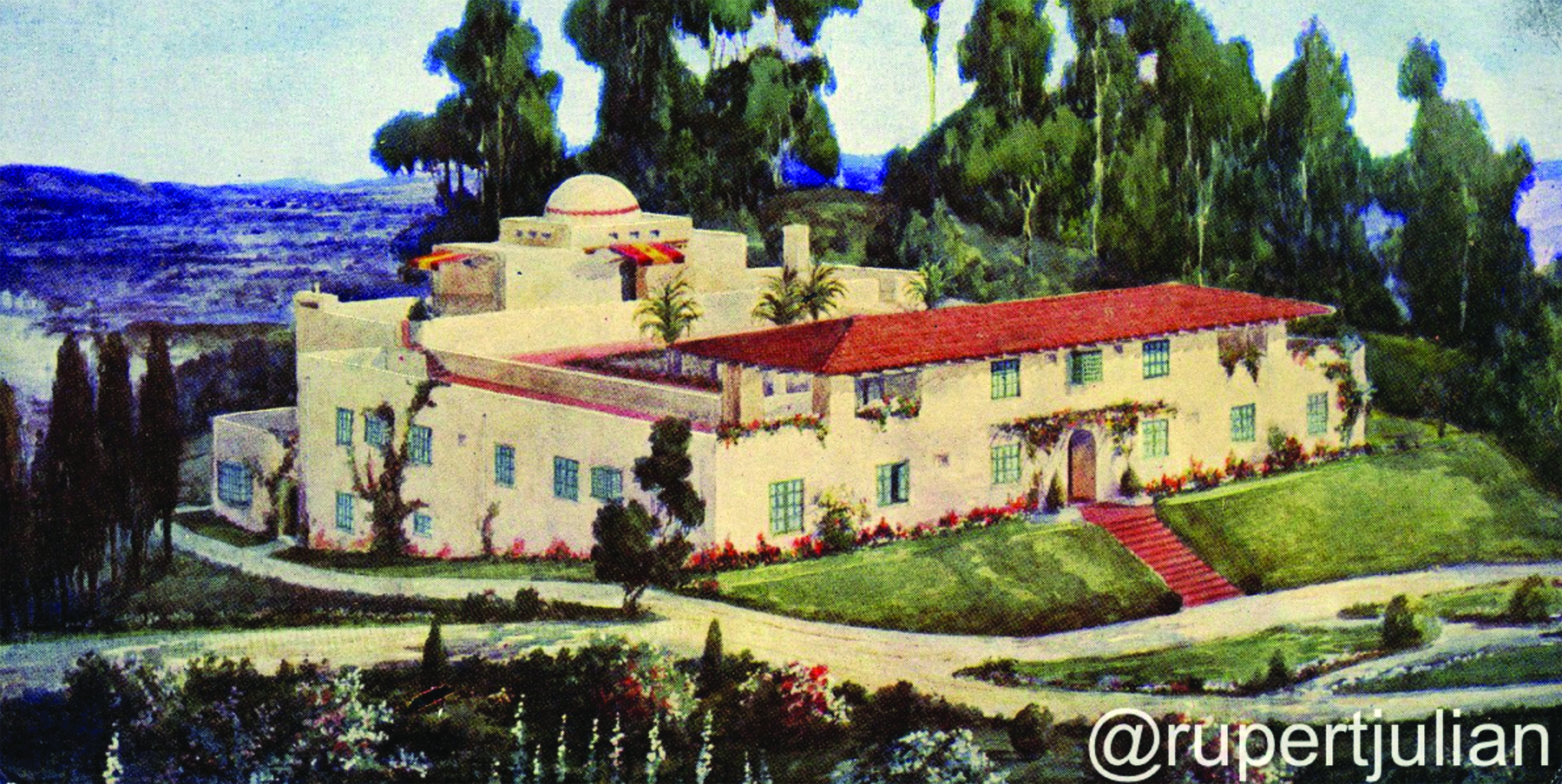
Leave A Comment